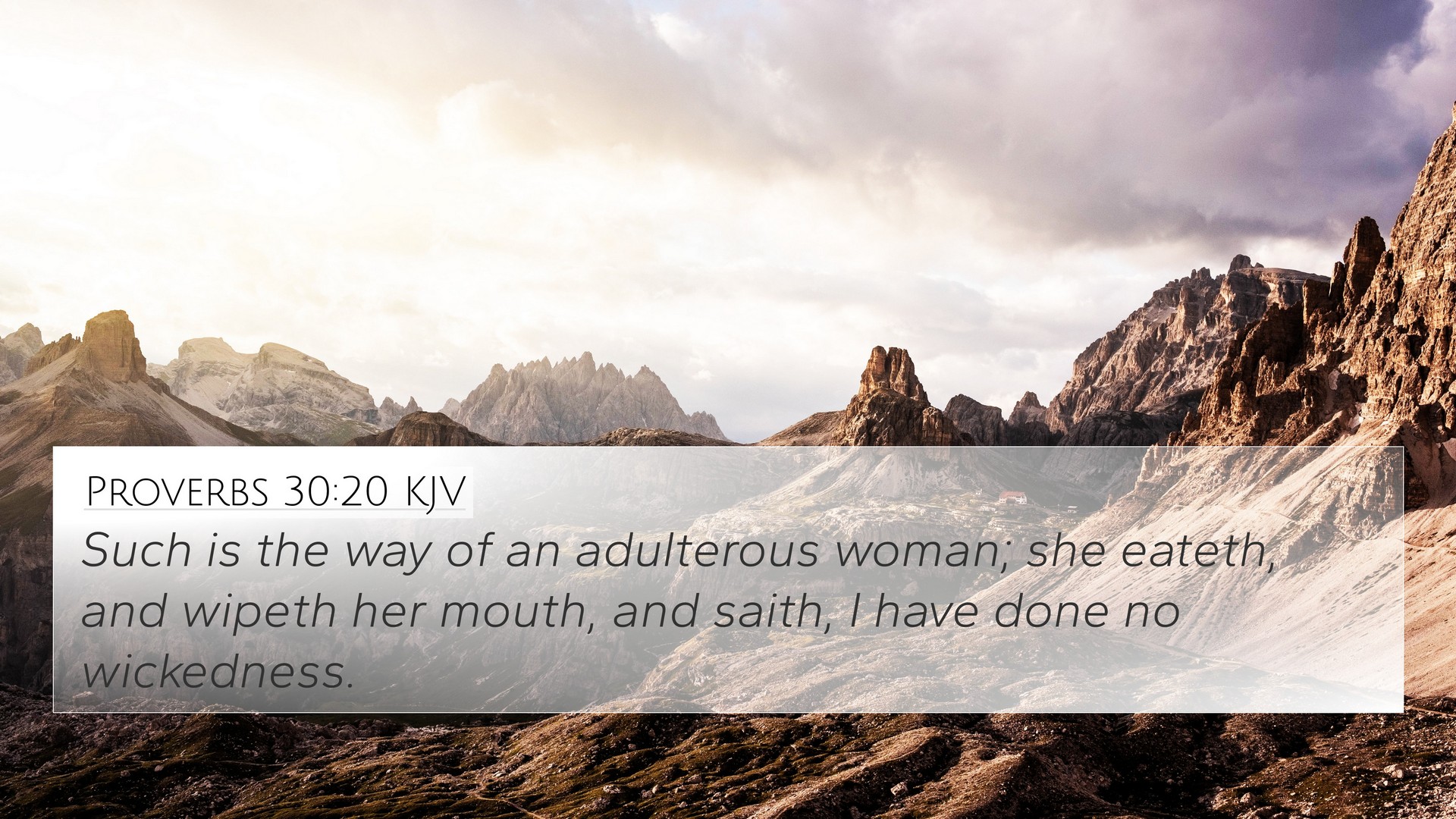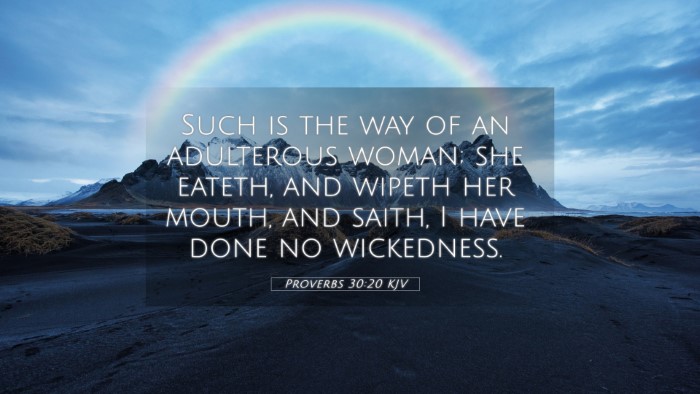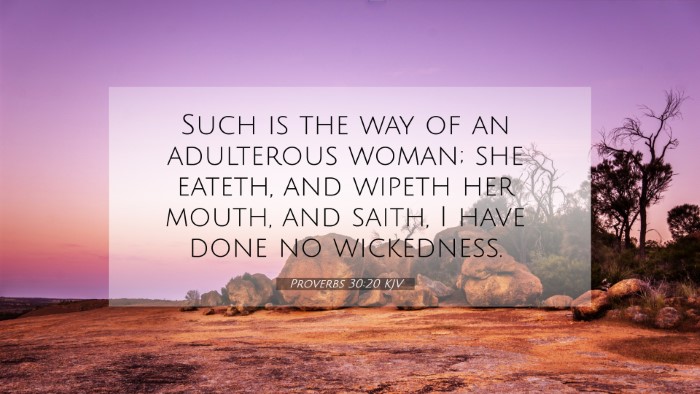Understanding Proverbs 30:20
Proverbs 30:20 states, "This is the way of an adulterous woman; she eats and wipes her mouth, and says, 'I have done no wickedness.'" This verse epitomizes the deceptive nature of certain sinful behaviors, specifically the infidelity symbolized by the adulterous woman. To gain a deeper understanding of this verse, we will explore the insights provided by renowned public domain commentaries, specifically those of Matthew Henry, Albert Barnes, and Adam Clarke.
Summary of Insights
This verse highlights the audacity and denial inherent in sin. Henry emphasizes the self-deception that accompanies unrepentant sin. The adulterous woman symbolizes those who indulge in sinful behaviors yet lack acknowledgment of their wrongdoing. Barnes points out that such a person may partake in sin without remorse, implying a dangerous disconnect between action and conscience. Clarke notes that the act of wiping the mouth signifies a facade of innocence, reinforcing the theme of hypocrisy in sin.
Thematic Connections
Several themes emerge from Proverbs 30:20. These themes illustrate the consequences of sin, denial of wrongdoing, and the moral decay present in unrepentant hearts. To better understand how this verse fits within the broader biblical context, we will explore intertextual connections.
Cross-References
- James 1:14-15 – This scripture talks about the process of temptation leading to sin, akin to how the adulterous woman rationalizes her actions.
- Hebrews 3:13 – Warns against being hardened by sin, highlighting the need for accountability and awareness of our faults.
- Proverbs 6:32 – This passage explains that one who commits adultery lacks understanding and destroys themselves, echoing the foolishness seen in Proverbs 30:20.
- Romans 1:28-32 – Discusses how God gives people over to depraved minds, leading to unchecked sinful behavior and societal moral decay.
- 2 Peter 2:22 – Describes the folly of returning to sin after knowing the truth, paralleling the behavior of the adulterous woman.
- Ecclesiastes 7:25 – Connects the themes of seeking wisdom and the folly of indulging in sin without realization.
- 1 John 1:8 – Illustrates the denial of sin and its deceptive nature, akin to the woman’s claim that she has done no wickedness.
Comparative Analysis
In linking these scriptures, we can see a complex dialogue surrounding themes of morality, sin, and repentance. The connections between Bible verses illuminate how Proverbs 30:20 fits into a broader discourse on human nature and ethical behaviors.
Tools for Bible Cross-Referencing
For those studying this theme further, utilizing tools such as a Bible concordance or a cross-reference Bible study can help identify additional verses related to the topic of sin and denial. Employing a comprehensive Bible cross-reference guide can systematically reveal the interconnections between various texts.
Key Takeaways
Proverbs 30:20 serves as a poignant reminder of the pride often accompanying sin, especially in the context of sexual immorality. The lack of accountability and self-awareness highlighted in this verse challenges readers to examine their own lives for areas of hidden sin.
Conclusion
In summary, Proverbs 30:20 warns against self-deception in sin, as portrayed through the metaphor of the adulterous woman. Through careful analysis and cross-referencing, we can appreciate the scripture's depth and its relevance to contemporary life. Understanding this verse and its connections enhances our grasp of the overarching biblical themes surrounding moral responsibility and the nature of sin.





